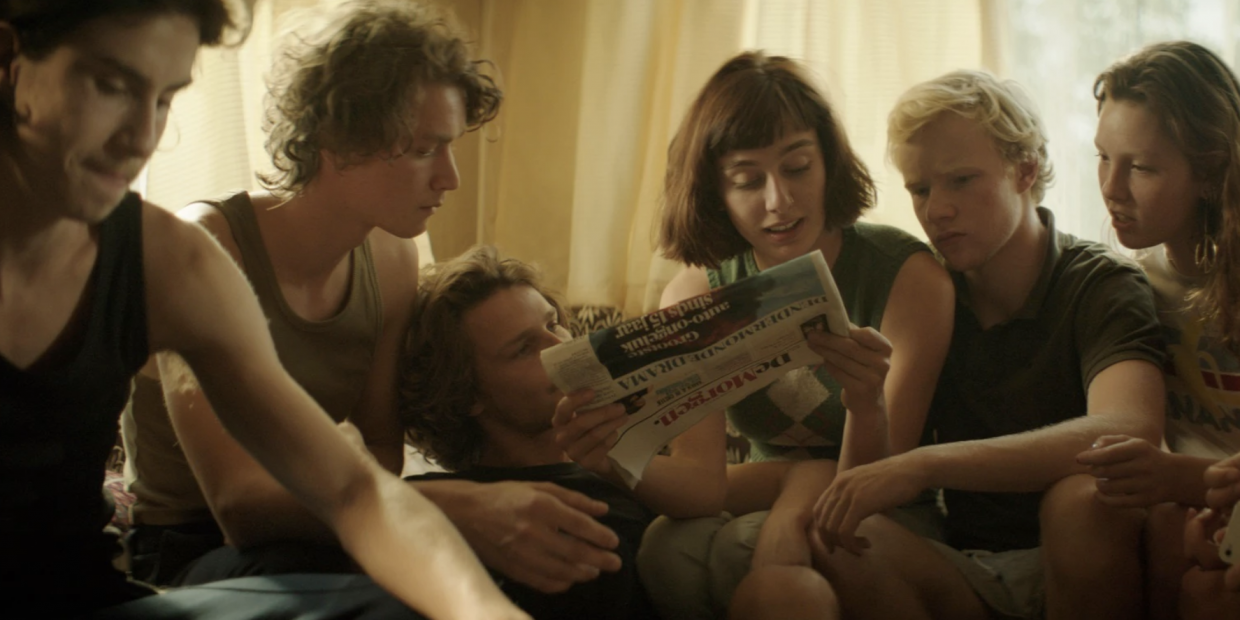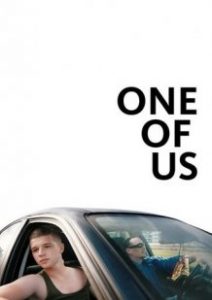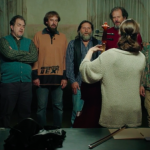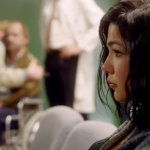Director: Rene Eller
Hong Kong International Film & TV Market review
There’s a borderline-paradox underlying the cynical worldview of We that begins with the film’s vaguely ominous title. On the one hand, Rene Eller’s bold and sinister portrayal of hedonistic youth is an alarming statement of collective identity, putting a generation’s worst impulses on display while suggesting that the larger ‘we’ of modern society is no less inclined to destruction and debauchery.
At the same time, Eller’s strikingly explicit spectacle of millennial depravity is rooted in a widespread emotional disconnect that’s extreme enough to raise doubts that a collective ‘we’ can even exist in our lonely, narcissistic times. Like the impersonal relationship between a prostitute and a client, the reality We paints is one based in cold exchanges of capital and instant gratification, where people hold little value beyond the pleasure and power that they can provide.
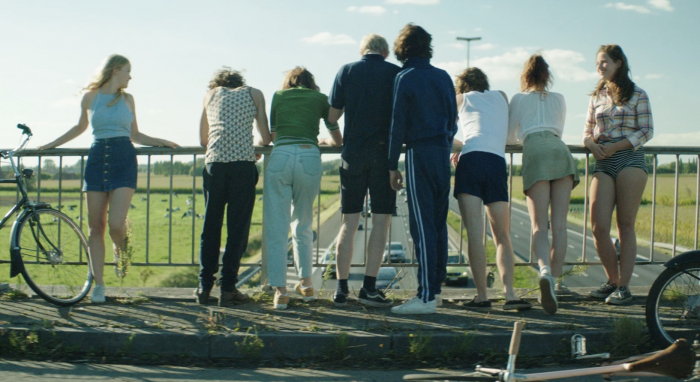
This solipsistic way of living extends to the film’s fractured, nonlinear narrative as the same escalating series of events are chronicled from four different perspectives, each more unhinged than the last. It’s a cyclic structure with a gradually demystifying effect exemplified by the repeated scene of four teenage girls flashing motorists on a highway – first showing only the group’s giddy response to the distracted drivers, then later observing the fatal consequences of their lurid distraction. With each narrative cycle, the film delves further into the illicit schemes and escapades of the story’s eight central characters, climaxing with the deranged power trip of the group’s sociopathic ringleader, Thomas.
What starts off as a familiar adolescent social life of prankish rebellion and sexual experimentation quickly snowballs into something far more dangerous as the largely unsupervised youths set up a teen brothel while documenting their services in order to blackmail their older, often highly esteemed clients. Though the group shows little regard for the wellbeing of outsiders – they even steal and abuse an old woman’s dog for no apparent reason other than the thrill of doing something awful – their cruelty is also directed internally. In particular, while the film’s uncensored scenes of genital-centric games and polygamous relationships may ostensibly suggest an atmosphere of sexual liberation, there is a clear gender hierarchy within the group that’s horrifically demonstrated when one of the prostitutes is made to undergo a monstrously crude abortion.
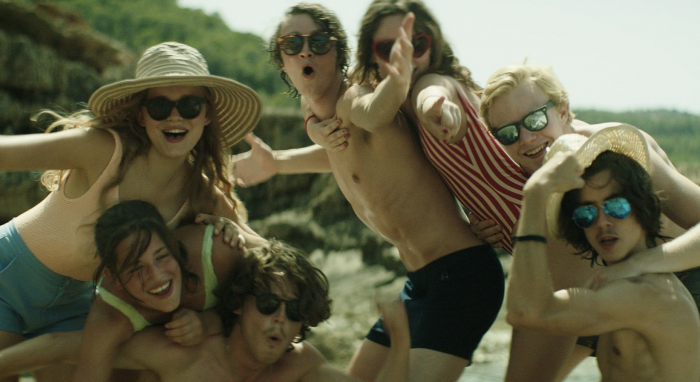
Contrasting deceptively idyllic rural days with shadowy neon nights, We’s inflammatory passages of aimless depravity and experimentation call to mind the divisive output of famed provocateurs like Harmony Korine, Larry Clark and Lars von Trier (the jaded young Liesl’s claim that the group is making ‘reality-art’ in defiance of a fake and hypocritical community could almost serve as a manifesto for the objectionable pranksters of The Idiots or Trash Humpers), though the film’s unnerving combination of summertime placidity and youthful rebellion may also suggest some overlap with the teen films of Sofia Coppola like The Virgin Suicides and The Bling Ring. The fragmented drama plays out with the eerie remove of a scrambled series of memories, evoking the in-the-moment emotional rush of its characters as much as the dread of hindsight.
It’s a film that exists within cloistered perspectives, capturing a post-modern numbness to the world that enables its characters to callously partake in despicable acts with little to no remorse. Eller’s subjectivity-based approach, however, is not without its limitations. Though the director is sure to pepper his film with examples of how the older inhabitants of the village community are similarly susceptible to corruption (most directly through a subplot of a local politician who regularly receives the services of the teen brothel), his simplistic model of societal sleaze rarely strays beyond its surface-level pessimism. Without a fleshed out cultural context for its characters’ degenerate antics, We becomes a sensationalist work that too often relies on the isolated, parent-baiting shock of its darkest scenes.
Then again, it is the brazen simplicity of Eller’s vision gives the film its blunt power, denying its audience any illusion of closure by way of easy answers or scapegoats. In the grim First World society of We, the young and the old are in competition over who can be the exploiter rather than the exploited. There are no moments of reflection and no solutions to be found – and that, more than its teen nudity, is where the film’s true provocation lies.

